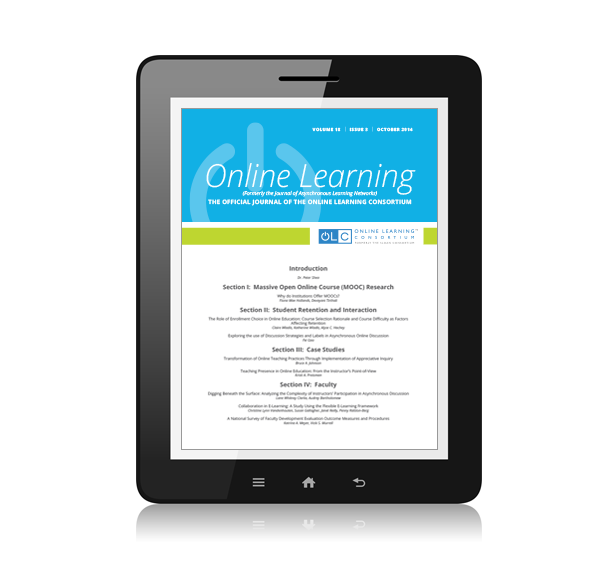Online Learning: OLC's Peer-Reviewed Academic Journal
Call for Articles on COVID-19 – Special Issue of Online Learning. See details below. Deadline to submit intention: July 10, 2020.

Call for Articles on COVID-19 – Special Issue of Online Learning. See details below. Deadline to submit intention: July 10, 2020.